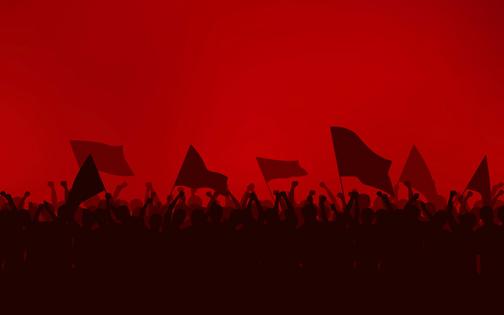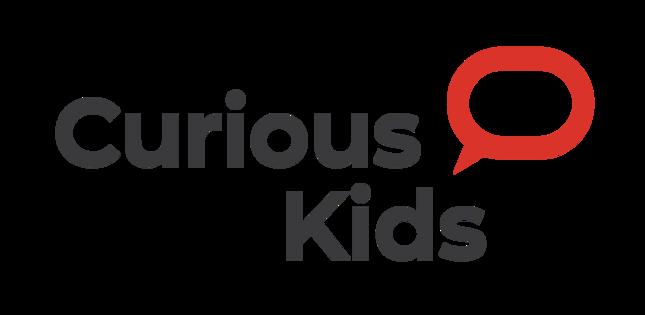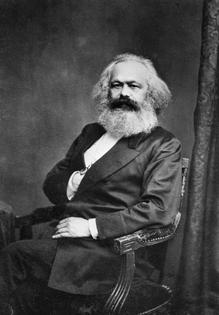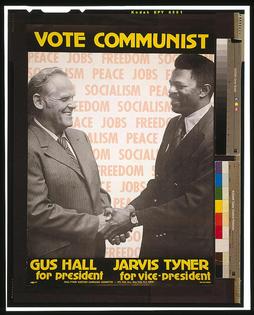What is a communist, and what do communists believe?
Published in Political News
Curious Kids is a series for children of all ages. If you have a question you’d like an expert to answer, send it to CuriousKidsUS@theconversation.com.
What is a communist? – Artie, age 10, Astoria, New York
Simply put, a communist is someone who supports communism. I study the history of communism, which is a political and economic view.
Communism has long been controversial, and in the U.S. today, reputable sources disagree about it. Some experts argue that communist views are well supported by historical evidence about the way societies have developed over time. Others suggest that history has shown communism not to work.
Many of those appraisals are based on examples of people who tried to establish communism. Communists have launched revolutions in many places including Russia and China. In five countries – China, North Korea, Laos, Cuba and Vietnam – communist parties control the current governments. The economic and political systems in those countries are not fully communist, but some might be working to transition from capitalism to communism.
In part because the U.S. has difficult relationships with these countries, many Americans have negative views of communists and communism. To evaluate those countries and to decide your own opinions about communism in general, it is important to first be clear about what the principles of communism are.
Communists believe that people should share wealth so that no one is too poor, no one is too rich, and everyone has enough to survive and have a good life.
A communist might be a member of a Communist party, which is a political party, or a member of a group of people who want to play a role in government.
In communism, people work together to produce and distribute the things they need to live, such as food, clothing and entertainment. That does not mean that everything is shared at all times.
In a communist society, individuals might still live in their own homes and have their own food, clothing and personal items such as televisions and cellphones. However, the places where these items were produced, such as factories and farms, would be owned by everyone.
Similarly, a person might still create artistic products such as works of literature or craftsmanship on their own. The goal would not be to make money, though, but instead to share for everyone to enjoy.
Communists support some form of collective ownership. Ownership by everyone would ensure that all members of society have equal rights to the products from the factories and farms because they would all be part owners of the enterprises.
In such a society, everyone would also have equal political rights and would participate in governance together. Theoretically, communism should entail some form of democracy.
Throughout history, there have been many different views on what communism is, how it should be organized and how it might be achieved. The most famous theories about communism are probably the ones that were developed by a German philosopher named Karl Marx. His ideas are often called Marxism.
Marx studied history and observed that the way people produced goods and services was closely related to who held power. For example, in farming societies, those who owned the land had more power than those who did not.
Marx also noticed that people with less power had often risen up, usually violently, to overthrow the powerful people. He called this concept class struggle. He believed this process was how societies developed from one system of government and economy to another. He claimed that class struggle led societies through a progression toward greater efficiency in the production of goods and services, higher levels of technology and wider distribution of social and political power.
When Marx was alive in the 1800s, an economic and political system called capitalism had developed in many countries. In capitalist societies, the economy centered on factories. Factory owners had significant political and economic influence.
Marx observed that in countries such as Germany, England and the United States, factory owners hired laborers who worked long hours producing goods such as shirts or tables. While the factory owners sold these products at high prices, they paid the workers very little. As a result, the factory owners became richer, while many workers struggled to afford the goods they produced or even to provide food for their families.
Marx believed that this inequality would eventually lead to a worker uprising. During their revolution, Marx predicted, the workers would seize control of the factories, begin running them more fairly, and this would lead to a new political system, known as socialism.
Of course, if the workers staged a revolution, the factory owners would fight back. Marx thought that, immediately after the revolution, the workers would first need to create a strong government to prevent the owners from reestablishing capitalism. During that phase, which Marx called socialism, the workers would run the government while they continued moving away from capitalism and trying to create a more equal society.
Marx thought people would eventually see that socialism was much better than capitalism because socialism would end exploitation while still allowing a society to continue moving toward better economic and political practices, but without inequality. Once that happened, a government would no longer be necessary.
The society would become communist. There would still be governance, but not a government that was separated from the people. Rather, in a communist society, the people would govern together, and everyone would do some of the work and receive what they needed.
There are Communist parties in many places, and many are currently working to move their countries toward communism. At this time, no country has yet made the transition to full communism, but many people still hope that transition will happen somewhere, sometime. Those people are communists. Communists are optimistic that humans can one day create a more fair and equal society.
Hello, curious kids! Do you have a question you’d like an expert to answer? Ask an adult to send your question to CuriousKidsUS@theconversation.com. Please tell us your name, age and the city where you live.
And since curiosity has no age limit – adults, let us know what you’re wondering, too. We won’t be able to answer every question, but we will do our best.
This article is republished from The Conversation, a nonprofit, independent news organization bringing you facts and trustworthy analysis to help you make sense of our complex world. It was written by: Aminda Smith, Michigan State University
Read more:
How socialism became un-American through the Ad Council’s propaganda campaigns
When and why do girls start forming cliques?
Green Bay Packers fans love that their team doesn’t have an owner – just don’t call it ‘communism’
Aminda Smith does not work for, consult, own shares in or receive funding from any company or organization that would benefit from this article, and has disclosed no relevant affiliations beyond their academic appointment.




































































Comments